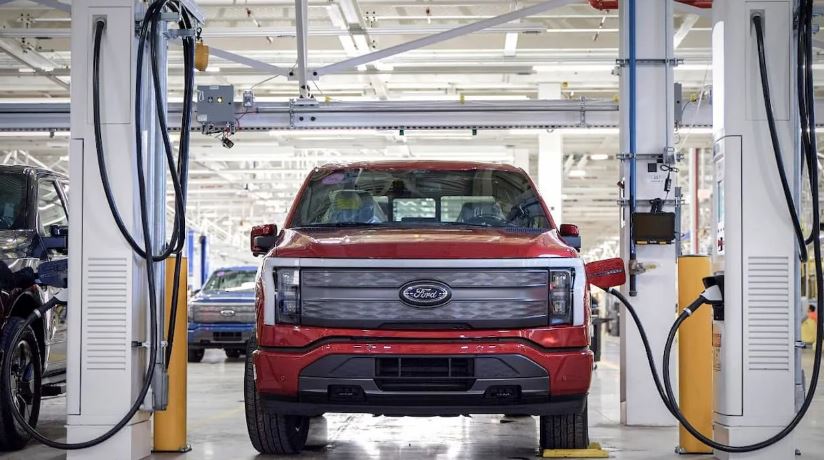Ford’s November sales paints revealing picture of US auto industry as EV adoption climbs
Ford released its US auto sales for November today, and although electric vehicle sales were up over 100% YOY for the fifth straight month, gas-powered car sales continued to slide. The sales report highlights the direction in which the US auto industry is headed – forward.
Khodrocar - In November 2022, Ford delivered 146,364 vehicles, down 7.8% from last year. Meanwhile, sales of Ford’s electric vehicles continue gaining momentum, up 102.6% YOY.
After an already strong year, Ford’s electric vehicle sales grew at about twice the rate of the overall market in November, helping Ford remain the number two EV maker in the US, behind only Tesla. Here’s a look at the company’s EV sales in November and (YTD):
F-150 Lightning: 2,062 (13,258)
Mustang Mach-e: 3,539 (34,683)
E-Transit van: 654 (5,811)
After an already strong year, Ford’s electric vehicle sales grew at about twice the rate of the overall market in November, helping Ford remain the number two EV maker in the US, behind only Tesla. Here’s a look at the company’s EV sales in November and (YTD):
F-150 Lightning: 2,062 (13,258)
Mustang Mach-e: 3,539 (34,683)
E-Transit van: 654 (5,811)
Ford expanded its EV market share by around 2% in November, claiming 8.6%. Perhaps more importantly, Ford’s EVs continue winning over customers, particularly those from gas-powered vehicles and other brands.
The company announced it had produced its 150,000th Mustang Mach-e this week as Ford accelerates production to keep up with the overwhelming demand for the electric SUV.
Although the milestone itself is a major accomplishment, according to Ford’s data, over 80% of US customers (90% in Europe) have transitioned from gas-powered vehicles. Furthermore, nearly three-quarters come from different brands, also making the jump from ICE vehicles.
The company announced it had produced its 150,000th Mustang Mach-e this week as Ford accelerates production to keep up with the overwhelming demand for the electric SUV.
Although the milestone itself is a major accomplishment, according to Ford’s data, over 80% of US customers (90% in Europe) have transitioned from gas-powered vehicles. Furthermore, nearly three-quarters come from different brands, also making the jump from ICE vehicles.

Ford’s November sales portray the broader trend the US (and global) auto industry is undergoing. New incentives and policies like the IRA bill in the US and the EU’s ban on new combustion vehicles are working as designed by sparking the change needed in the auto industry to transition toward zero-emission electric vehicles.
Electrek’s Take
The data shows people want and are willing to make the switch from gas-powered vehicles to fully electric. A new report from S&P Global Mobility highlights this trend, showing drivers are buying brands that have been early leaders in the EV era.
In particular, the information shows automakers like Toyota and Honda, who have been slow to introduce pure EV models, are converting to brands that have invested heavily in developing electric vehicles.
Drivers are trading in their Toyota RAV-4 and Honda CR-V for Tesla (Model Y and 3), Ford Mustang Mach-E, Chevrolet Bolt (EV and EUV), and the Hyundai IONIQ5. Expect to see more like this as the industry transitions.
Latest News


